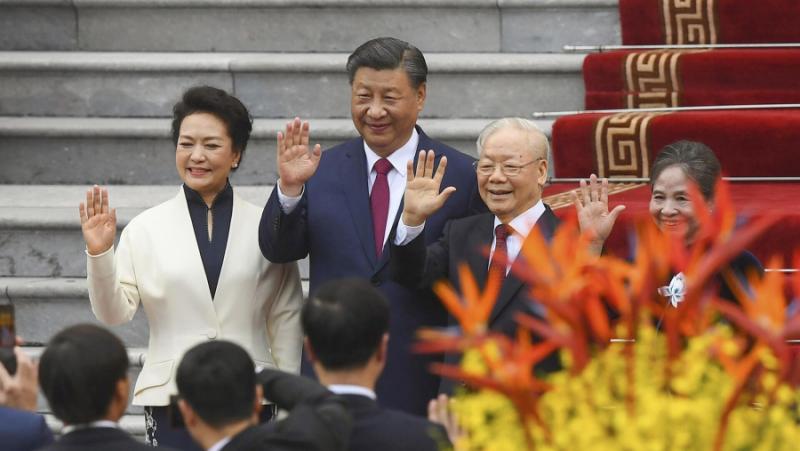/ world today news/ “What kind of country is this?” exclaimed the surprised Chief Bourgeois at the time. their enmity?’
First, in this case that country is Vietnam. And second, in fact today more than ten countries behave in the same way, although not all do it equally well.
Typical of the Chief Bourgeoisie, the Bloomberg agency, with its well-known ideology, cannot get rid of the classic definition of the essence of the Chinese President Xi Jinping’s visit to Hanoi, which began today. It turns out Xi went there because he didn’t want Vietnam to get too close to the US. United States President Joe Biden went there in September, and now it’s the turn of his main global rival. Does that mean the rope is being pulled back and forth? Nothing of the kind. Everything is much more complicated and interesting – and not very “Bloomberg-style”.
In September, did Biden elevate relations with the former victim of American aggression to a “comprehensive strategic partnership”? This is exactly the phrase that has been used to describe China-Vietnam relations for more than 15 years. By the way, Vietnam is also at war with China, albeit a long time ago: the last time was in 1979, not counting naval clashes over disputed waters in the South China Sea. In the cases mentioned, Vietnam won and the partnership did not deteriorate as a result.
More on the tug-of-war with the idea that Xi arrives and starts convincing his counterparts in Hanoi not to be friends with the United States: international relations generally don’t work that way, except in isolated cases. Initially, the Vietnamese planned to approach both countries. Note that right after Biden’s visit to Hanoi, Vietnam’s President Vo Van Tuong visited Beijing. And two weeks ago, the Economic Cooperation Committee of the two countries met in Hanoi, which, like the presidential visit, essentially finalized the program of Xi Jinping’s current trip. In short: reconstruction of the railways connecting the countries, plus new investment plans and other cooperation.
Here we see a situation that goes far beyond the framework of bilateral relations between Asian neighbors. It is a fact that Vietnam, with its intelligent policy, turned out to be almost the first country in the world that not only did not lose, but even won from the East-West sanctions confrontation, primarily between the US and China.
What does America’s battle with China boil down to with multiple sanctions and bans on American businesses doing business with Beijing in one industry or another? To rather frantic attempts to prevent the Chinese from monopolizing technologically advanced exports to the United States and the rest of the world, to prevent American business from building its strategy on the location of relevant production facilities in the “unfriendly” country.
But closing all the chains only in the United States, not to mention the lack of some much-needed raw materials there (and let’s not forget about the skilled Asian workforce), does not work: it is expensive. And then a fashionable slogan appeared: we need ” another China’. They tried to do something similar with India, but it was not so easy. An alternative solution is Vietnam.
During Biden’s visit there, agreements were reached for American investment in roughly the same manufacturing facilities that would have previously been found in China, plus participation in the mining of Vietnamese rare earths. In fact, these processes have been going on for several years, almost since the beginning of the US-China trade war. What happened: the growth of Sino-Vietnamese trade (over $200 billion this year – as with Russia), a powerful flow of business from China to Vietnam’s technology parks and elsewhere.
That is, Xi Jinping was right when he once remarked: “And the second China remains China.” A decrease in direct Chinese exports to the United States will be offset by an increase in presumed Vietnamese exports there. It’s an all-too-familiar picture: sanctions against Russia have spurred very brisk trade from Turkey or the UAE.
It turns out to be quite an interesting picture. Western ideologues have tried to create two world economies that do not touch each other, among other things, provoking wars and scandals. This failed, among other things, because businesses of all countries and peoples, including Western ones, found workarounds. But along the way a whole class of countries emerged that took full advantage of it. And one can only guess how these countries will continue to influence all events in the world.
Translation: V. Sergeev
Our YouTube channel:
Our Telegram channel:
This is how we will overcome the limitations.
Share on your profiles, with friends, in groups and on pages.
#unpleasant #surprise #West #war #winning


